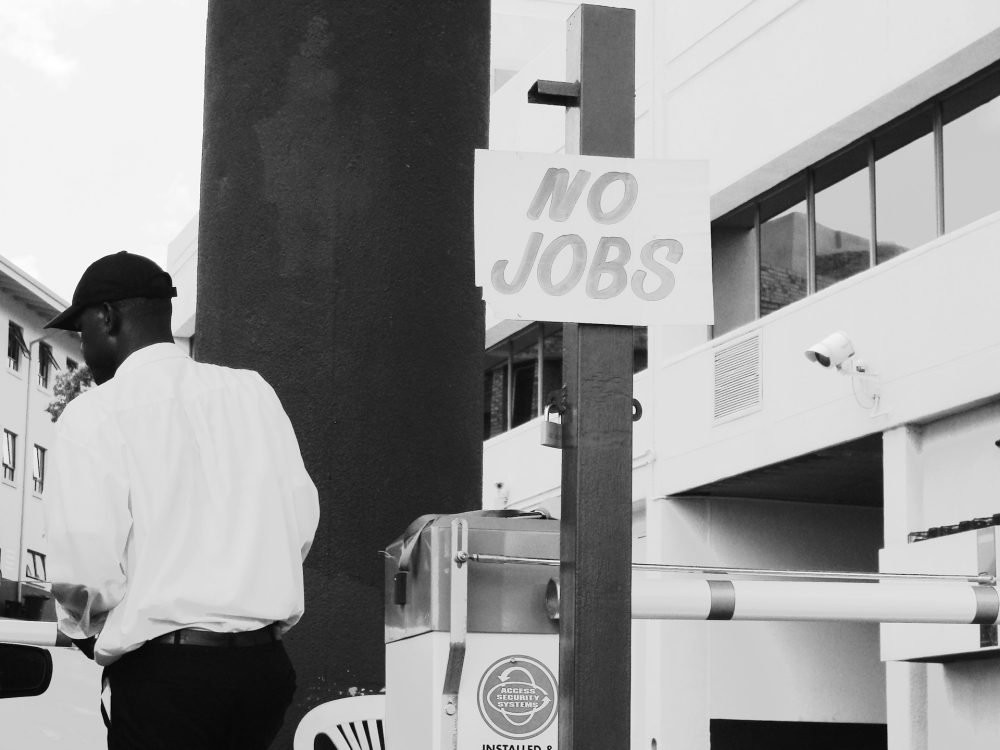Featured
Mooncard, the French fintech company that digitizes the public sector
The French startup Mooncard has just deployed its expense claim dematerialization solution to 500 public institutions. Before conquering the public market, Mooncard was focused on the private sector for four years, equipping many French companies. Its customer portfolio includes nearly 3,000 references. This summer, the Mooncard Mobility was launched on the market.

The management of expense reports, an administrative ordeal for many French companies. Fortunately, in recent years, new payment technologies have brought welcome dematerialization solutions. Among these French players is Mooncard.
Read more about Mooncard and find the latest business headlines with the Born2Invest mobile app.
Mooncard will help 150,000 public sector employees dematerialize their expense claims
The fintech company created in 2016 by Tristan Leteurtre (current CEO), Damien Metzger (current CTO) and Pierre-Yves Roizot (current CFO), has just deployed its expense management solution to 500 public institutions. The announcement was made official on Tuesday, September 22nd, 2020, and the public institutions equipped with Mooncard are very good references: Matignon, Bercy, the Ministry of Defense, the Police, the National Gendarmerie, the Louvre, and the CNRS (French National Center for Scientific Research).
A deployment that is part of a digital transformation of the State accelerated by the context of the COVID-19 pandemic. Mooncard’s CEO, Tristan Leteutre, is delighted with this large-scale partnership between a private startup and public authorities: “This is a dazzling and successful take-off for Mooncard with the French government. The recent signing of a major contract with the French government has enabled us to offer our solution to employees to digitize and automate their business travel expenses. This success confirms the one we have been experiencing for the past two years in large groups and SMEs: agents and employees alike need solutions like ours to be freed from their administrative mental workload and no longer have to deal with the drudgery of managing business expenses or expense reports.”
The 500 public establishments represent approximately 150,000 employees, including all French government ministries. Last June, Mooncard revealed this collaboration with the French public arcane through a press release. The project to “digitize the French government’s expenses and business expenses” was expected to eliminate the processing time for more than 3 million fuel-related expense claims each year. The startup is talking about a million paper receipts that no longer need to be printed. All invoices are digitized immediately, and their accounting processing is automated, thanks to integrations with HR software (Cegid, Sage, etc.).
“With demand having accelerated sharply this summer, the French government is sending out a strong and exemplary signal by speeding up the digitalization of the daily lives of its public servants,” comments Mooncard. And for good reason, Bruno Le Maire and Cédric O indicated in June that French companies would be at the heart of the reconstruction of a French economy that has been shaken by new work habits. 7 billion was thus allocated to its digital transformation, with the objective of “French technological sovereignty.”
Agile deployment and a wide range of functionalities
Before conquering the public market, Mooncard was focused on the private sector for four years, equipping many French companies. Its customer portfolio includes nearly 3,000 references, including Cityscoot, Mirakl (the French startup specializing in e-commerce that has just raised $300 million), Cora, Air France and Zadig & Voltaire.
Mooncard’s offer is based on a payment card whose rights management can be very finely tuned by managers. In terms of functionalities, for example, it is possible to define time slots for card activation, geographic zones, and also whether or not to authorize withdrawals. Once the expense bill has been paid with the card, a verification system is triggered: “as soon as a cardholding employee makes a payment, he or she receives a notification by SMS inviting him or her to take a photo of the receipt related to the expense. Thanks to a specific agreement with Mastercard we are able to retrieve all payment information in real time. A connection with the online diaries allows us to retrieve additional information and to understand, for example, that this expense corresponds to a certain lunch. We are thus able to automatically pre-populate expense forms,” explained the CEO of the fintech company.
Mooncard also offers extremely fast onboarding. The payment card is available within 24 hours, can be activated in 5 minutes, and can be configured in real time. With several development cycles, the startup displays more than 60 user criteria that can be configured in the back office.
2020 is a good year to launch new services.
Last March, the company launched Mooncard X, a premium card giving access to a personal assistant available 7 days a week and 24 hours a day, a dedicated travel agency, VIP status with 60,000 service providers or merchants (rental companies, airport lounges, florists, etc.) and travel and IT insurance that is unrivalled on the market.
This summer, the Mooncard Mobility was launched on the market: France’s first fuel card for business travel giving access to 100% of service stations, parking lots and tolls. The card can also be used at electric recharging stations.
So European fintech companies are in full development. Sweden’s Klarna has just become the continent’s first fintech to exceed $11.7 billion (€10 billion) in value. The British company Revolut closed a $585 million (€500 million) deal last February.
__
(Featured image by stevepb via Pixabay)
DISCLAIMER: This article was written by a third party contributor and does not reflect the opinion of Born2Invest, its management, staff or its associates. Please review our disclaimer for more information.
This article may include forward-looking statements. These forward-looking statements generally are identified by the words “believe,” “project,” “estimate,” “become,” “plan,” “will,” and similar expressions. These forward-looking statements involve known and unknown risks as well as uncertainties, including those discussed in the following cautionary statements and elsewhere in this article and on this site. Although the Company may believe that its expectations are based on reasonable assumptions, the actual results that the Company may achieve may differ materially from any forward-looking statements, which reflect the opinions of the management of the Company only as of the date hereof. Additionally, please make sure to read these important disclosures.
First published in SiecleDigital, a third-party contributor translated and adapted the article from the original. In case of discrepancy, the original will prevail.
Although we made reasonable efforts to provide accurate translations, some parts may be incorrect. Born2Invest assumes no responsibility for errors, omissions or ambiguities in the translations provided on this website. Any person or entity relying on translated content does so at their own risk. Born2Invest is not responsible for losses caused by such reliance on the accuracy or reliability of translated information. If you wish to report an error or inaccuracy in the translation, we encourage you to contact us.

-

 Cannabis7 days ago
Cannabis7 days agoCannabis and the Aging Brain: New Research Challenges Old Assumptions
-

 Africa2 weeks ago
Africa2 weeks agoUnemployment in Moroco Falls in 2025, but Underemployment and Youth Joblessness Rise
-

 Crowdfunding5 days ago
Crowdfunding5 days agoAWOL Vision’s Aetherion Projectors Raise Millions on Kickstarter
-

 Fintech2 weeks ago
Fintech2 weeks agoFintower Secures €1.5M Seed Funding to Transform Financial Planning

























